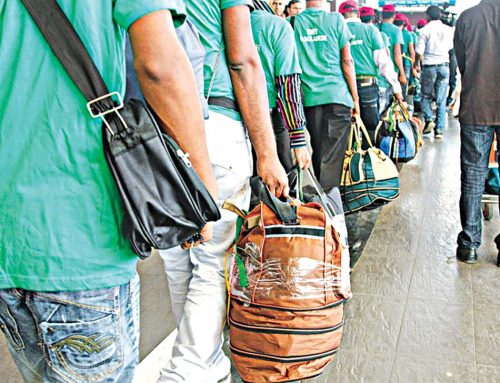SpaceX has expressed its intention to launch a satellite internet service called Starlink in Bangladesh as officials of the US-based company founded by Elon Musk yesterday met with two government entities to this end.
Joel Meredith, manager for global government affairs at SpaceX, and Parnil Urdhwareshe, manager for global licensing and activation, met top officials of the Bangladesh Satellite Company Limited (BSCL) and the ICT Division.
“They expressed their intention to operate in Bangladesh and that is why, they came here,” said BSCL Chairman Shahjahan Mahmood.
“However, whether they get approval is for the government to decide. It would be a tough decision though as local mobile operators and internet service providers (ISPs) already provide data services,” he added.
Mahmood also said SpaceX officials showed a demonstration of Starlink’s internet and download speed, which reached about 500mbps when he used it in the morning.
“The service can be given in remote areas, where fibre optics are unavailable,” he added.
Mahmood informed that they collected five Starlink terminals (Starlink Kits) to analyse the technology.
A government official participating in the meeting said the officials of SpaceX were asked if they can “fulfil the lawful interception requirement” to prevent illegal activities in digital spheres.
Later in the evening, SpaceX officials met top officials of the ICT Division.
“We received two Starlink devices. One will be used at the Sheikh Russel Digital Lab in a remote area, where high speed internet is not available,” said Zunaid Ahmed Palak, the state minister for ICT.
The other one will be used in a movable bus for women, he added.
Palak said they tested one of the devices by setting up the antenna on the roof of the ICT Division.
And throughout 1.5 hours of testing, the speed and connection were stable at 150mbps, he added.
The state minister for ICT informed they are exploring how Starlink’s connection can be beneficial for people living on islands and remote areas such as chars as well as the students of marginal schools.
“We will test the devices for three months and analyse how they work during rain, fog and bad weather, Palak said.
And after three months of piloting, the ICT Division may enter a deal with Starlink on how its internet can be used in education, research and health.
The ICT Division invited Elon Musk to host a meeting with Prime Minister Sheikh Hasina in New York in September or come to Bangladesh for a similar meeting, he added.
Shyam Sunder Sikder, chairman of the Bangladesh Telecommunication Regulatory Commission (BTRC), said they did not meet the SpaceX officials as of yet.
The BRTC is responsible for regulating and overseeing telecommunication and internet services in the country.
Mustafa Jabbar, telecom minister, said SpaceX must take the government’s permission prior to the downlink of the satellite.
Also, Starlink must get an ISP license for providing internet services in the country, he added.
BSCL Chairman Mahmood said the BTRC’s approval was taken for the test run of Starlink internet.
Experts said it will be beneficial for the country if satellite internet is launched in the country.
Abu Saeed Khan, a senior policy fellow at LIRNEasia, said there are many scopes to use satellites in Bangladesh as they now have new applications with the latest technology.
The government had artificially barred the use of satellite internet for a long time. Even the Bangabandhu Satellite-1 has not been wisely utilised in accordance with its capacity.
“The BTRC has had an anti-satellite stand since its inception, which is very unfortunate,” he added.
Khan said that once upon a time, the country had a good number of satellite technology engineers specialised in ground stations.
However, the industry has not flourished due to discouragement from the regulator.
“It has a great future though as long as sensible regulations prevail,” he added.
Mahtab Uddin Ahmed, former CEO of Robi Axiata, said the satellite internet service will only be fruitful if it is used in remote areas, where mobile internet services are not available.
This is because it would create server competition if launched in areas where mobile internet is already available.
“So, it would be great if satellite internet is provided in uncovered areas at a low cost,” he added.
A SpaceX official declined to comment, saying that he is not authorised to speak on the issue.
SpaceX provides satellite internet coverage to more than 70 countries with about 4,519 Starlink satellites currently in orbit.
July 27th, 2023
Share This Story, Choose Your Platform!



